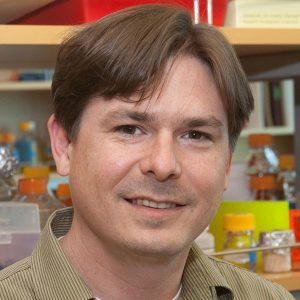


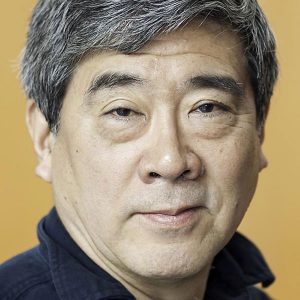
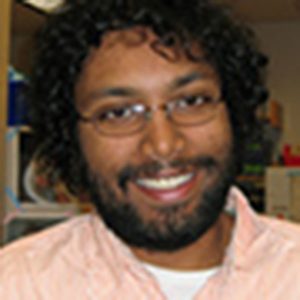
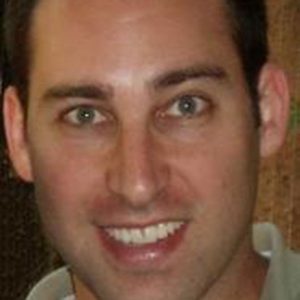
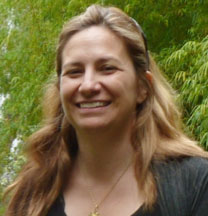
Diane brings over 35 years of research program development and successful program funding efforts in excess of $3B, strategic planning and executive management experience. Diane was instrumental in EBRC’s successful launch in 2016 following the sunsetting of SynBERC. In this role, she coordinated the development and submission of the proposal that led to the Department of Defense (DoD) 2020 award to create the Bioindustrial Manufacturing and Design Ecosystem (BioMADE) Institute, a USA Manufacturing Institute and served as BioMADE’s Chief Financial and Operating Officer until 2024.
Diane is a graduate of UC Berkeley where she spent the majority of her career serving in many roles including as the Deputy Director of the QB3 Institute and Assistant Vice Chancellor for Research overseeing Research Enterprise Systems and the development of large-scale science initiatives. At Berkeley, she conceptualized, developed and shepherded large-scale science efforts and programs through successful resource procurement, launch and on-going operations. Notable efforts launched include the National Center for the Workplace, QB3 Institute, the Center for Computational and Genomic Biology, and the NSF-funded SynBERC,. Diane led Berkeley’s coordination efforts to establish the Stanford Underground Research Facility (SURF) and oversaw the successful proposal development establishing the Energy Biosciences Institute (EBI), a $500M award – the largest university-industry agreement in the nation’s history.
Following her time at UC Berkeley, Diane held positions at Lawrence Berkeley National Laboratory’s Biological Systems and Engineering (BSE) Division and Joint BioEnergy Institute (JBEI). She oversaw the development of three successful JBEI renewal proposals and coordinated large-scale proposal efforts. As Director of Research Advancement, Diane coordinated JBEI’s successful competitive renewal proposal and as BSE’s Deputy Operations Director and JBEI’s COO, Diane oversaw an annual budget of over $30M, a 65,000 sf research facility, EH&S, outreach and communications, lab operations and business services.
Diane also spent two years as Director of Institutional Philanthropy at Planned Parenthood Northern California (PPNorCal), the nation’s fifth largest affiliate serving 20 counties and providing services to 150,000+ people. She more than doubled their annual institutional philanthropy support. Diane has founded and served on the Boards of a number of non-profit organizations. She currently serves on the Board of Directors for Calidad Industries, a 501-C-3 providing training and employment opportunities for adults with physical, mental or psychological impairments.
Angela is currently the Administrator at EBRC, managing event planning, administration, and program support. Prior to her role at EBRC, Angela was an Administrator at an international auction house specializing in antiques. A native of the bay area, she received her bachelors in International Relations from the University of California Davis and Masters of Business Administration at Golden Gate University.
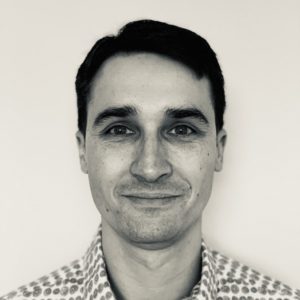
Douglas Friedman is CEO of BioMADE, the Bioindustrial Manufacturing Innovation Institute. In founding BioMADE, Doug seeks to secure the growth of the U.S. industrial biomanufacturing ecosystem and advance the bioeconomy. He is also President of the Engineering Biology Research Consortium (EBRC), a nonprofit membership organization focused on advancing precompetitive technologies in a safe, secure, sustainable, and ethical manor. At EBRC, Doug focuses on strategic initiatives, serves on the board and key leadership groups, and mentors science policy postdoctoral fellows. He was the inaugural Executive Director of EBRC from 2016 to 2021.
His primary scientific and technical interests lie in the fields of synthetic biology, biomanufacturing, and modern biotechnology. Doug’s policy interests include development of sustainable biotechnology, safeguarding the bioeconomy, and accelerating technical advancement by building diverse, robust community partnerships. He regularly serves as a subject matter expert on emerging biotechnologies, biotechnology policy, and national security topics at the interface of the biological and chemical sciences. Doug participates in more than a dozen external scientific and policy committees and boards.
Prior to his role at EBRC, Doug was a study director and senior program officer with the Board on Chemical Sciences and Technology at the National Academies of Sciences, Engineering, and Medicine. His primary portfolio focused on the advancement of science and engineering at the interface of chemistry and biology, often as they related to national security.
Earlier in his career, Doug performed research in physical organic chemistry and chemical biology in academia and industry. He earned a Ph.D. in Chemistry from Northwestern University and a B.S. in Chemical Biology from the University of California, Berkeley.
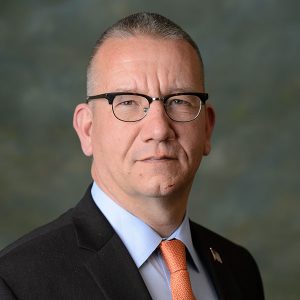
J. L. “Clem” Fortman is a synthetic biologist with a long standing interest in biodefense. He is currently a staff member at the EBRC, and was formerly a technical analyst for synthetic biology with ANSER providing support to the Office of the Deputy Assistant Secretary of Defense for Chemical and Biological Defense, where he previously served two years as an American Association for the Advancement of Science (AAAS) Science and Technology Policy Fellow. He is also a former Fellow with the Emerging Leader in Biosecurity Initiative at the Johns Hopkins Bloomberg School of Public Health Center for Health Security. Clem is a classically trained microbial physiologist with a PhD in microbiology from the University of Minnesota. He spent 6 years as a postdoc in the University of California, Berkeley (UCB) Department of Chemical Engineering where he gained his expertise in synthetic biology. He is a founder of the introductory College-Level Experience in Microbiology (iCLEM) program at UCB, an educational outreach program for under resourced high school students, as well as Lygos, a San Francisco Bay area synthetic biology company. His career in biodefense was stimulated by his time as an enlisted man in the US Army where he served in a number of different roles including assistant Nuclear, Biological, and Chemical Non-Commissioned Officer for the Headquarters and Service Battery of the 1st Battalion 319th Airborne Field Artillery Regiment.
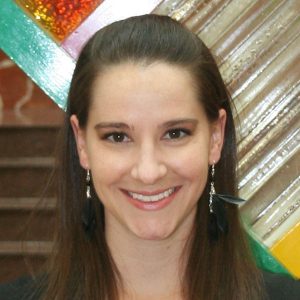
Emily Aurand is the Senior Director for Roadmapping and Education at the Engineering Biology Research Consortium. She has been with EBRC since 2018, serving as the staff lead for both the Roadmapping and Education Focus Areas. Emily is the Executive Editor of EBRC’s technical research roadmaps, and has led the production and release of all six EBRC technical roadmaps to-date, available through https://roadmap.ebrc.org. She directs roadmap design and development, manages large teams of academic, industry, government and other stakeholder contributors, leads and oversees workshop development and facilitation, and is responsible for production and execution of roadmap publications.
Emily also serves as an expert on engineering biology and biotechnology education and workforce development, engaging with the U.S. government, organizations such as the National Academies of Science, Engineering, and Medicine, and international collaborators on the education and training of the next-generation bioeconomy workforce. Emily created and led the EBRC Industry Internship Program and produces public engagement and outreach activities and materials through the EBRsee initiative. Emily supervises and mentors the EBRC science policy postdocs and research assistant and supports the Student & Postdoc Association.
Emily also leads the EBRC Industry & Organizational Member Advisory Committee and leads science policy communications, develops and manages funding and grant support, and oversees and manages the EBRC websites.
Prior to coming to EBRC, Emily was an American Association for the Advancement of Science (AAAS) Science & Technology Policy Fellow at the National Science Foundation. At NSF her work in the Division of Chemical, Bioengineering, Environmental, and Transport Systems (CBET) included evaluation and assessment of the Synthetic Biology and Biomanufacturing portfolios, collaboration on the strategic reorganization of CBET programmatic concentrations, and development and implementation of novel funding initiatives, in addition to serving as a subject matter expert (a biologist amongst engineers). During her AAAS fellowship, Emily also served as a co-chair of the Fellows’ Science Diplomacy Affinity Group, which explores how science and technology cooperation can be used as a tool for diplomacy.
Emily received a B.S. in Biomedical Sciences from Colorado State University and a Ph.D. in Neuroscience from the University of Colorado. She continued her academic training in Trieste, Italy with a neuroengineering post-doctoral fellowship at the International School for Advanced Studies (SISSA). Her scientific research experience spans the fields of developmental neurobiology, biomaterial development, and neural tissue engineering and biocompatibility.
Emily is a United States Figure Skating Double Gold Medalist and the proud Auntie to adorable toddler Jack. In her free time, she likes to relax by practicing yoga, dance in her kitchen while she cooks, and snuggle with her elderly cats (who make frequent appearances in EBRC virtual events). When she’s not traveling to convene with EBRC members and stakeholders, Emily lives and works in Colorado.
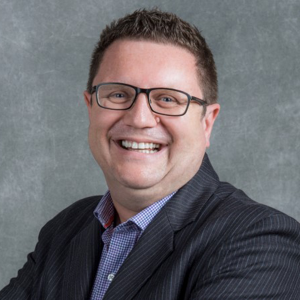
Dr. Mouncey joined the DOE Joint Genome Institute in 2017 as the fourth Director in its 20-year history. After stints as a senior research scientist in molecular biology at Roche Vitamins, Inc. in New Jersey and DSM Nutritional Products in Switzerland, he joined Dow AgroSciences in Indianapolis in 2008 and served as Bioengineering and Bioprocessing R&D Director and Leader from 2011 onward. There, Mouncey directed a 70-member R&D team that supported the growth of a highly successful natural product insecticide that has since generated hundreds of millions of dollars of revenue and significant societal benefit, through isolating, optimizing, and scaling-up of new production strains for commercial manufacturing by fermentation. He also built an integrated and highly effective bioprocessing team comprising high-throughput screening, metabolic engineering, engineering biology, systems biology, enzymology, protein expression, fermentation and analytical capabilities. His team also developed production strains and fermentation processes for other molecules such as a new fungicide, propionic acid and long-chain alcohols, as well as supporting the discovery of new crop traits.
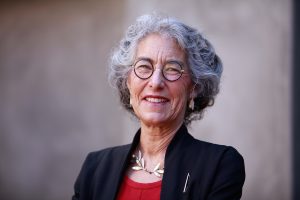
A leader in the field of religious studies with particular scholarly interest in bioethics and Jewish studies, Laurie Zoloth’s research explores religion and ethics, drawing from sources ranging from Biblical and Talmudic texts to postmodern Jewish philosophy, including the writings of Emmanuel Levinas. Her scholarship spans the ethics of genetic engineering, stem cell research, synthetic biology, social justice in health care, and how science and medicine are taught. She also researches the practices of interreligious dialogue, exploring how religion plays a role in public discussion and policy.
Zoloth is author of Health Care and the Ethics of Encounter: A Jewish Discussion of Social Justice and co-editor of five books, including Notes from a Narrow Ridge: Religion and Bioethics and Jews and Genes: The Genetic Future in Contemporary Jewish Thought.
Zoloth has been the president of the American Academy of Religion and the American Society for Bioethics and Humanities. She was the inaugural director of the Jewish Studies program at San Francisco State University and director of graduate studies in religious studies at Northwestern. She is an elected member of the Hastings Center and a life member of Clare Hall, University of Cambridge. She is a founding board member of the Society for Scriptural Reasoning.
Her work on bioethics and health care led her to serve on the NASA Advisory Council, the space agency’s highest civilian advisory board; the International Planetary Protection Committee; the National Recombinant DNA Advisory Board, and the executive committee of the International Society for Stem Cell Research. She served as chair of the first bioethics advisory board at the Howard Hughes Medical Research Institute and has testified in front of Congress, the President’s Commission on Bioethics, and state legislatures.
Zoloth began her career as a neonatal nurse working in impoverished communities; she holds a bachelor’s degree in women’s studies from the University of California, Berkeley and a bachelor’s degree in nursing from the University of the State of New York. She received a master’s degree in Jewish studies and a doctorate in social ethics from the Graduate Theological Union. Zoloth also holds a master’s degree in English from San Francisco State University.
Prior to joining the University of Chicago, Zoloth served as a Charles McCormick Deering Professor of Teaching Excellence at Northwestern University, holding appointments in the Department of Religious Studies in the Weinberg College of Arts and Sciences and in the Feinberg School of Medicine. At Northwestern, she was founding director of the Brady Program in Ethics and Civic Life at the Weinberg College of Arts and Sciences and founding director of the Center for Bioethics, Science and Society at the Feinberg School of Medicine.
She currently serves on the Ethics Advisory Board of NASA; the steering committee of The Engineering Biology Research Committee; on the CDC (Biological Agents Working Group); and on the Ethics Board of the American Heart Association.
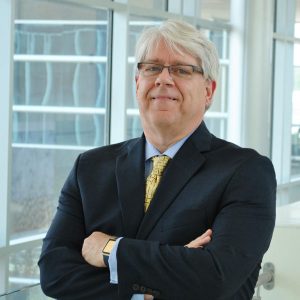
Steven L. Evans spent 30 years bringing biotechnology products to the field in small and large companies. Steve’s research blended high-resolution chemical analysis with enzymology and recombinant protein expression to explore agricultural and environmental applications of biotechnology. In 1988 he joined Mycogen Corporation, now Corteva Agriscience, where he was involved in developing natural and recombinant biopesticides, including several crop traits from the Mycogen genome pipeline. He worked to commercialize biochemical actives from natural products, several transgenic crops, and plant genome editing technology. After retiring as a Fellow from Dow AgroSciences he founded Re-Knowvate LLC. His passion is to use this experience and repurpose it today in organizations which drive 21st century biotechnology so that they may learn from the actions of the early pioneers in applied biotechnology, thus accelerating their ability to develop and deploy new technologies to benefit our world. Steve has been active in public-private partnerships such as the National Science Foundation–sponsored SynBERC synthetic biology consortium, which is now the Engineering Biology Research Consortium (EBRC). He served as Chair of the SynBERC the Industrial Advisory Board, and is now active in various roles at the EBRC. Steve served on the National Academies of Sciences Future Products of Biotechnology study and is currently on the NAS Safeguarding the Bioeconomy study. He was co-chair of the Biotechnology Innovation Organization’s Industrial and Environmental Section synthetic biology subteam. He received his BA and BS degrees in chemistry and microbiology from the University of Mississippi and a PhD in microbial physiology from the University of Mississippi Medical School. He was a National Institutes of Health postdoctoral fellow at the University of California, Berkeley, and subsequently with the U.S. Department of Agriculture (USDA) in Peoria, Illinois.
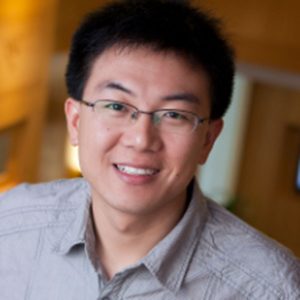
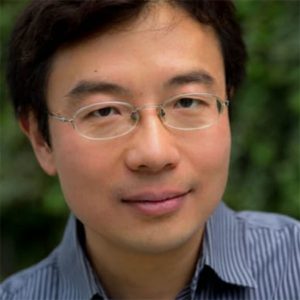
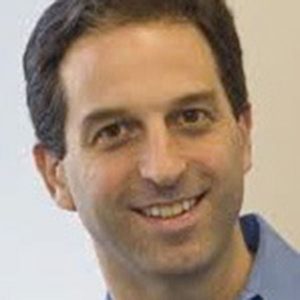
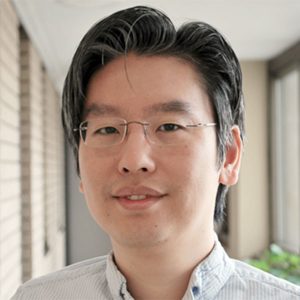
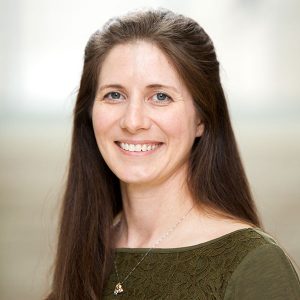
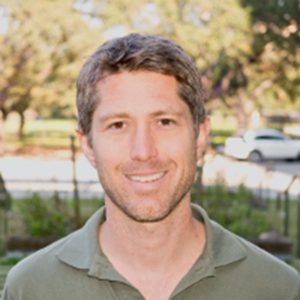
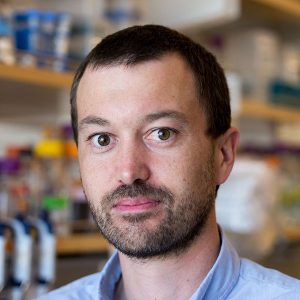
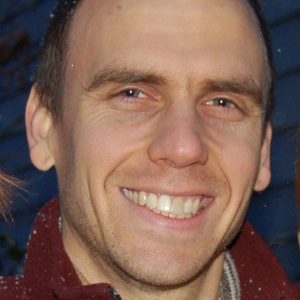
Michael Smanski is currently an Assistant Professor of Biochemistry, Molecular Biology, and Biophysics in the Biotechnology Institute at the University of Minnesota. He received his BS in Biochemistry from the University of California, San Diego and a PhD in Microbiology from the University of Wisconsin under the mentorship of Ben Shen. As an HHMI Postdoctoral Fellow of the Damon Runyon Cancer Research Foundation, he worked with Christopher Voigt in the Department of Biological Engineering at the Massachusetts Institute of Technology. He joined the faculty of the University of Minnesota in 2014. Throughout his career, Michael has studied and engineered multi-gene systems in bacteria. His group at UMN has developed a new platform for engineering ‘species-like’ barriers to sexual reproduction, and they are currently exploring applications for transgene biocontainment and the control of pest populations. Michael has been a member of EBRC since 2018 and has served on the EBRC Council from 2019-present.